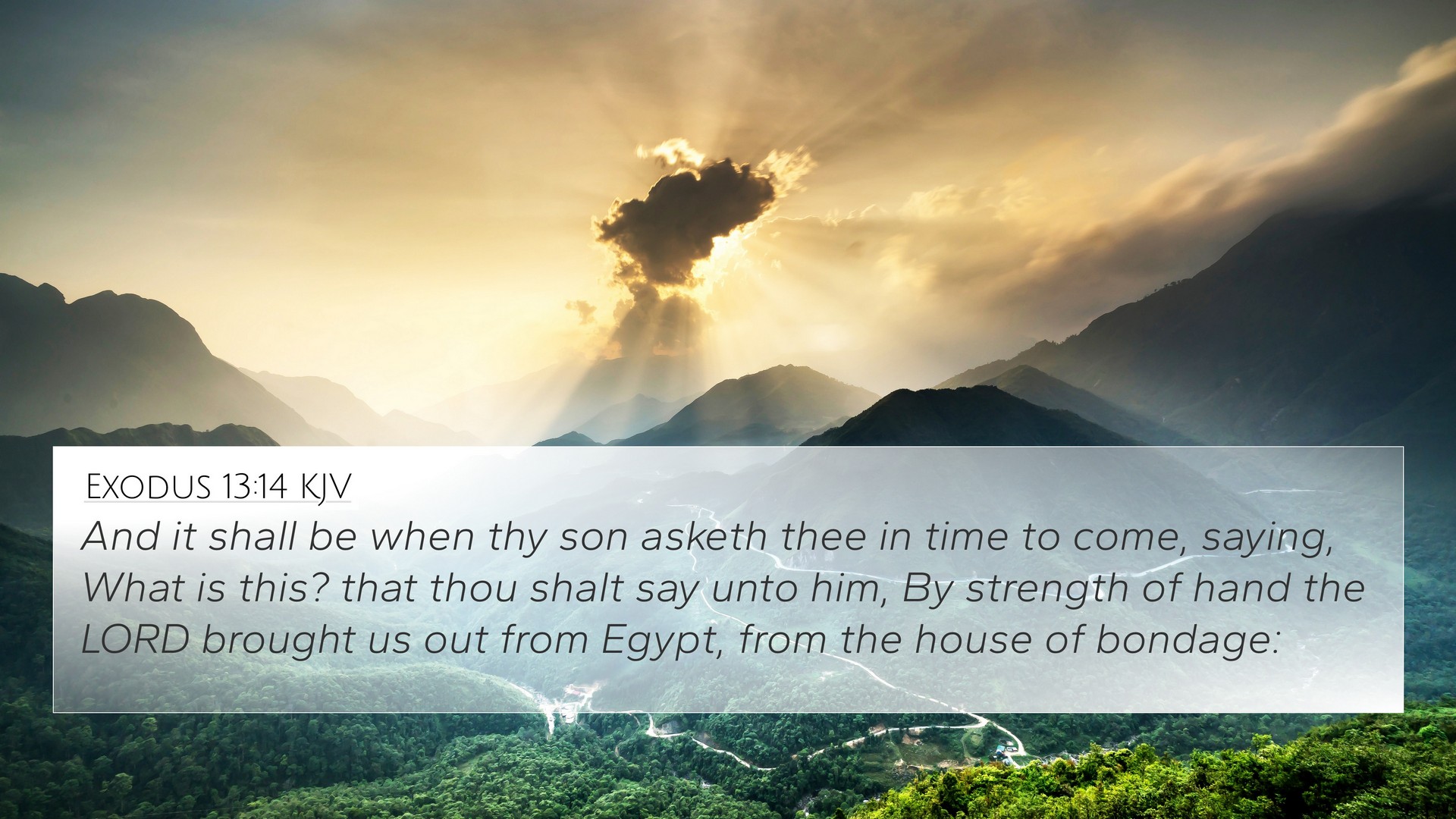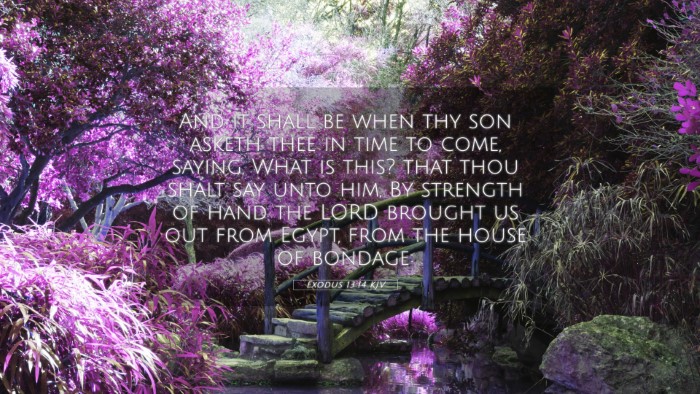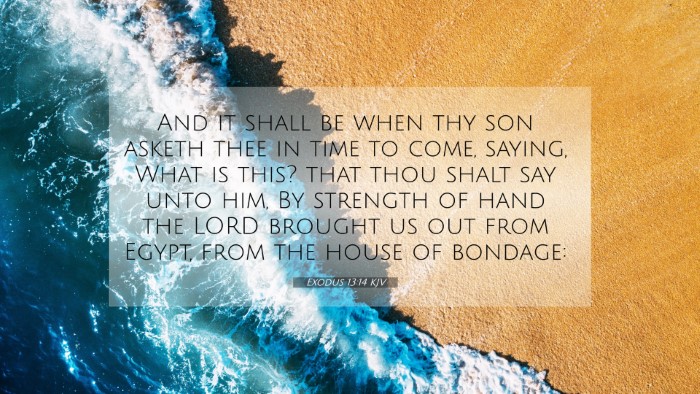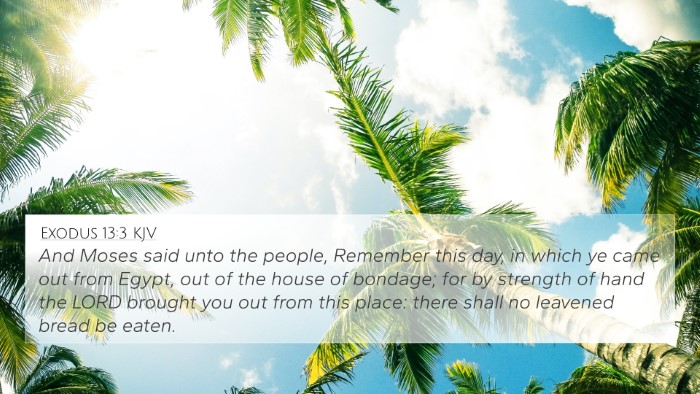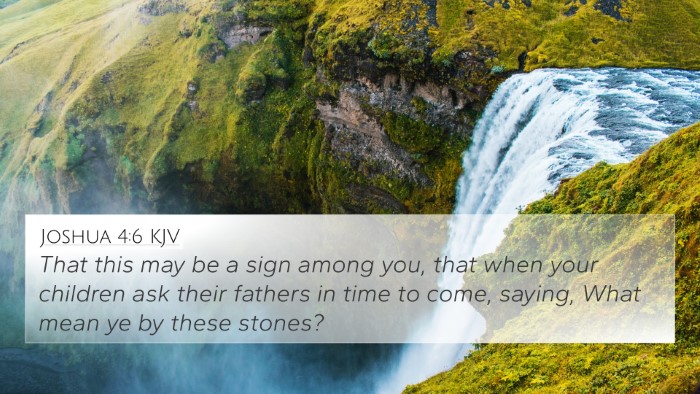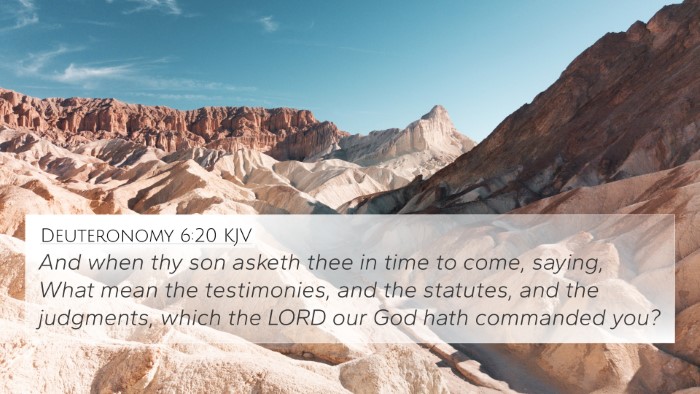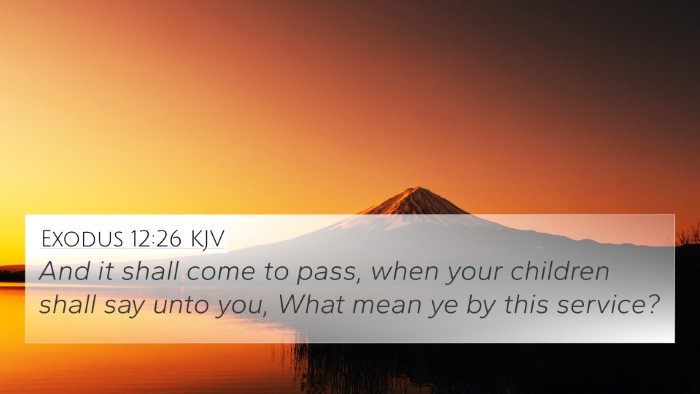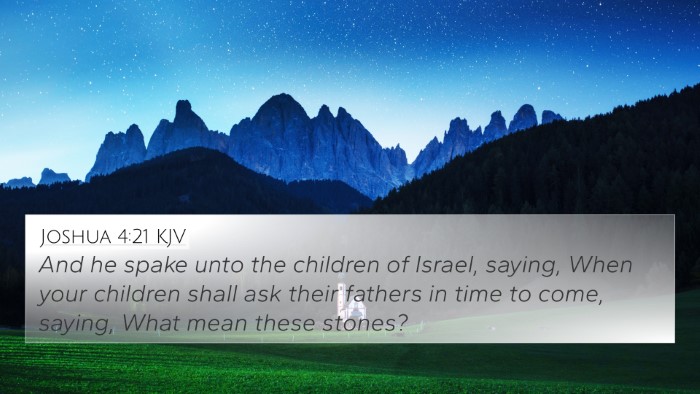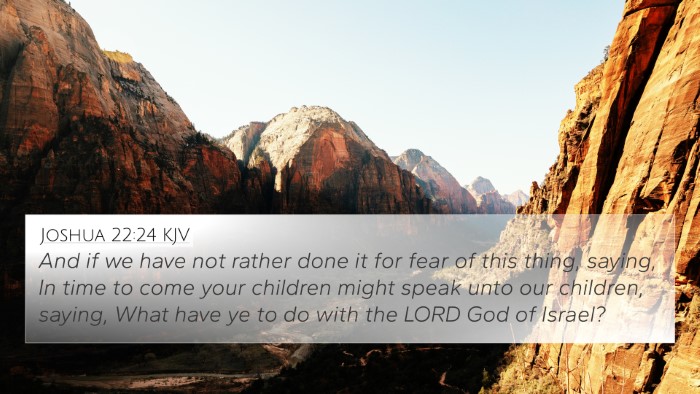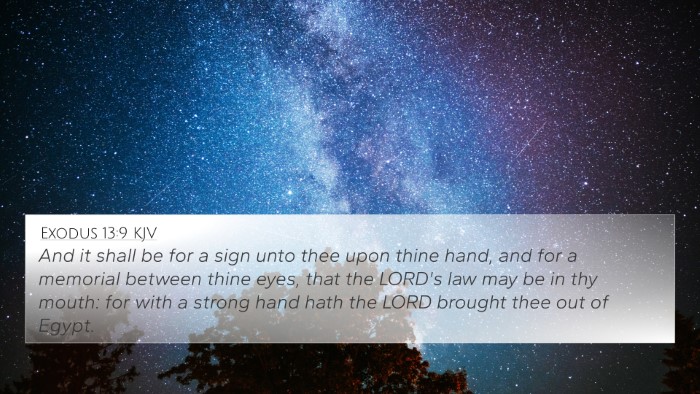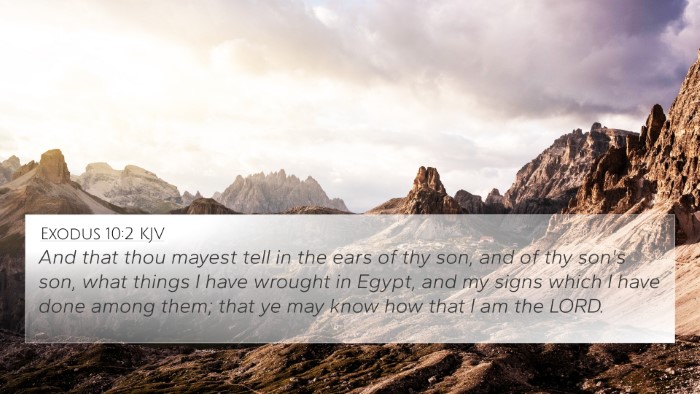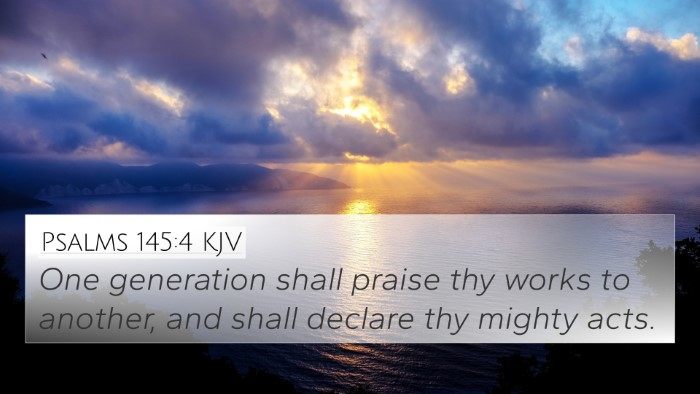Understanding Exodus 13:14
Verse: "And it shall be, when thy son asketh thee in time to come, saying, What is this? that thou shalt say unto him, By strength of hand the LORD brought us out from Egypt, from the house of bondage." (Exodus 13:14)
Summary of Meaning
Exodus 13:14 outlines a significant commandment given to the Israelites, particularly focusing on the importance of teaching the next generation about God’s deliverance from slavery in Egypt. This verse emphasizes the role of memory in faith, as it instructs parents to relay the story of God’s mighty hand liberating them. The act of remembering and recounting these events is crucial in maintaining a robust collective identity centered around faith.
Commentary Insights
The insights compiled from public domain commentaries provide a deeper understanding of this verse:
-
Matthew Henry:
Henry emphasizes the importance of parental instruction in the faith. He notes that when children express curiosity about their heritage, it presents a ripe opportunity for parents to teach about God’s miraculous deeds, specifically His power and faithfulness in delivering Israel from bondage.
-
Albert Barnes:
Barnes highlights that the question of the son reflects a natural curiosity and desire to understand their identity and history. He suggests that the response should not only recount the events but also convey the theological significance of God’s strength and purpose behind the deliverance.
-
Adam Clarke:
Clarke points out that the act of retelling these events serves both as a reminder of their past and a declaration of their faith. He suggests that this practice instills a sense of gratitude and recognition of God's continual guidance and protection in their lives.
Cross-References and Connections
This verse resonates with numerous other scriptures, enriching its meaning through thematic connections. The following cross-references enhance understanding:
- Deuteronomy 6:20-23: Discusses instructing children about how God delivered Israel.
- Psalm 78:4: Calls for imparting the wonderful works of God to future generations.
- Joshua 4:21-24: Encourages remembrance of God's miracles for future generations.
- Exodus 12:26-27: Similar inquiry during the Passover and its explanation.
- Leviticus 23:43: Reminds Israel about their journey and God's protection as they dwelt in booths.
- Isaiah 51:9-10: Reflects on God’s power and deliverance resembling His actions in Egypt.
- Luke 2:39-40: The upbringing of Jesus, reflecting on divine protection and heritage.
Importance of Cross-Referencing
Understanding Exodus 13:14 through cross-references provides invaluable insights:
- Tools for Bible Cross-Referencing: Engaging with a Bible concordance aids in exploring relationships between verses.
- Cross-Reference Bible Study: Systematic cross-reference studies reveal deeper theological themes.
- Bible Chain References: Tracing themes across scriptures offers a cohesive understanding of biblical narratives.
Thematic Connections
Exodus 13:14 integrates themes of remembrance, identity, and divine intervention, illustrating how these concepts correlate throughout the Bible.
Practical Application
In applying the lessons from this verse, families and communities are encouraged:
- To engage children in discussions about their faith heritage.
- To create rituals or practices that highlight God’s interventions in their lives.
- To utilize Bible reference resources to explore themes and narratives comprehensively.
Conclusion
Exodus 13:14 serves as a crucial verse in understanding the role of memory and instruction in faith. By cross-referencing with other significant biblical texts, one can uncover the intricate connections that exist throughout scripture, fostering a deeper faith experience.
